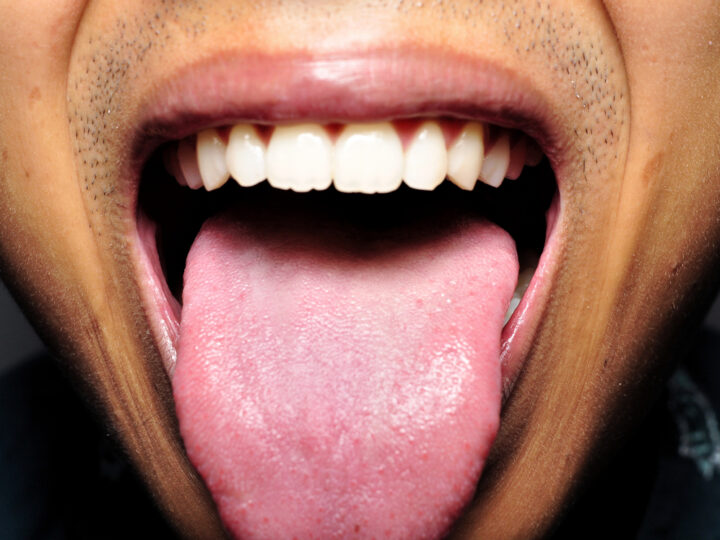GUT HEALTH SHOWDOWN: EAST VERSUS WEST ON 3 COMMON GUT PROBLEMS
Natural Remedies For Acid Reflux, Constipation and IBS

Gut problems are notoriously tricky. Often, they can be tough to diagnose, hard to treat, and just plain uncomfortable to have.
But there’s always more than one way to approach a problem. That’s why we decided to compare Eastern medicine and western medicine when it comes to 3 common gut health issues: acid reflux, constipation, and IBS. Whether you’re coming from an Eastern perspective or a western perspective, this list just might help you find some relief.
Acid Reflux
 If you’re one of the 30% Americans who gets heartburn every now and then or you have the longer lasting version of acid reflux known as Gastroesophageal Reflux Disease (GERD), here’s the medical lowdown on your digestive issues.
If you’re one of the 30% Americans who gets heartburn every now and then or you have the longer lasting version of acid reflux known as Gastroesophageal Reflux Disease (GERD), here’s the medical lowdown on your digestive issues.
Acid reflux is caused by stomach acid invading your esophagus. This might give you a burning feeling in your chest and it can cause other uncomfortable symptoms like bloating, burping, and hiccups. Usually this will happen after a meal or at night. Most people will get it every once in a while, but if you have acid reflux episodes 2 or more times a week, you probably have GERD.
Western doctors usually recommend that their patients who struggle with acid reflux stop eating and drinking things that might trigger their symptoms, like spicy foods, fatty foods, and acidic fruits like citrus. If you get heartburn every once in a while, you can take an antacid like Alka-Seltzer or Rolaid. But if you have bigger problems with acid reflux, your doctor might prescribe you a medication to help strengthen your stomach lining or reduce your stomach acid levels.
However, sometimes your GERD can be caused by too little acid in your diet. It takes a certain amount of acidity (more than in raw lemon juice or vinegar) to trigger the closing of your esophageal sphincter, the muscles which close off your stomach from your esophagus. If you try to stop GERD with antacids, you can make things worse so make sure you see your doctor if you have concerns.
In The East
In Traditional Chinese Medicine, or TCM, the key to good health is finding harmony in your body. So most diseases, illnesses, and problems are caused when things become unbalanced. In the case of acid reflux and GERD, that imbalance is in the Stomach Qi. Eating a poor diet, eating too much, smoking cigarettes, and even being overweight can clog up your Stomach Qi, but so can things like long periods of being stressed or frustrated.
Because worry and anxiety can trigger your Liver qi to attack the Stomach, most TCM treatments for this revolve around destressing and calming your anxiety so the Qi flows down , not up into the throat. Traditional stress relieving techniques include things like Tai Chi, acupuncture or meditation, but you can do whatever helps you work through your stress. That might be yoga, your night time skin care routine, or a kickboxing class.
Constipation
 When your food doesn’t pass through your digestive quickly enough, it can get trapped somewhere along the way. The longer your body’s waste stays in your colon, the harder it becomes to get it out. That’s when you become constipated.
When your food doesn’t pass through your digestive quickly enough, it can get trapped somewhere along the way. The longer your body’s waste stays in your colon, the harder it becomes to get it out. That’s when you become constipated.
In western medicine, constipation can be caused by a number of things, including poor diet, stress, PMS, and even taking certain medications. If you have chronic constipation, your doctor will probably suggest that you make some lifestyle changes to help the problem. These changes might include:
- Upping your water intake
- Nixing carbonated drinks and alcohol from your diet
- Eating more fruits and veggies with fiber, like beans, prunes, and avocado
- Working out for 20-30 minutes 5 days a week
- Adding food with probiotics like Kimchi or yogurt to your diet
In The East
Like acid reflux, TCM thinks of constipation as an issue with the Qi flow in your digestive system (are we seeing a trend?). When our energy is low and our Qi is sluggish, our digestive system doesn’t have enough power to process our food like it should and we end up straining on the toilet.
In TCM, there are actually 5 different types of constipation. Each version has its own triggers and symptoms and a visit to a TCM practitioner will help you figure out which one you’re struggling with. It could end up being a sign of a larger imbalance in your blood, yin, or yang. A TCM practitioner will need to know lots of details about your bathroom business, including the consistency, color, and smell of your poop.
Irritable Bowel Syndrome
 About 1 in 10 people in the US have Irritable Bowel Syndrome or IBS, and women are more likely than men to have it. This particular gut problem can take a lot of different forms: one day you might have loose, diarrhea-like stools and the next day you might be constipated. People with IBS also might experience a host of other gastrointestinal symptoms like bloating, cramping, and gas. To make matters worse, many women experience worse symptoms when they are PMSing or pregnant.
About 1 in 10 people in the US have Irritable Bowel Syndrome or IBS, and women are more likely than men to have it. This particular gut problem can take a lot of different forms: one day you might have loose, diarrhea-like stools and the next day you might be constipated. People with IBS also might experience a host of other gastrointestinal symptoms like bloating, cramping, and gas. To make matters worse, many women experience worse symptoms when they are PMSing or pregnant.
The west doesn’t have a cure of IBS yet, but there are ways to manage the symptoms. Your doctor will probably encourage you to make some lifestyle changes, mostly revolving around your diet. Depending on your symptoms, you and your doctor can find a diet that works for you.
People with IBS can also manage their symptoms by quitting smoking, reducing their stress levels, and lowering their caffeine intake. If these steps don’t work, your doctor might prescribe you a medication to help reduce your symptoms like Lotronex or Xifaxan.
In The East
In TCM, IBS is usually the result of an imbalanced diet or emotional problems. But because IBS is fairly common in China, TCM has quite a few effective remedies that you can use to sooth your symptoms and feel better.
Here are the 2 most common TCM treatments for IBS:
- Herbs and Herbal Formulas: Herbal remedies are very popular in TCM, and many have been created to help people who have been disappointed by prescription pills. Some common natural remedies for IBS include Aloe Vera, turmeric, peppermint oil, and carmint. Po chai pills or the probiotic Shen qu can also help.
- Acupuncture: In TCM, acupuncture helps to stimulate certain spots on the skin that are connected to our organs. By targeting particular points related to digestion, your acupuncturist can help get your Qi flowing again. Right now, the research is inconclusive, but some studies show that acupuncture can help relieve IBS symptoms like bloating and diarrhea.
If you’ve got one of these 3 common gut problems, try out some of these remedies to see which one works best for you or set up a virtual consultation with one of our Eastern medicine experts so they can speak to you about which solution might be best for you and your body. Whether you opt for eastern wisdom or western knowledge (or a mix of the two!) all that matters is that you find a treatment that keeps you healthy.
Newer
Teen Anxiety Is On The Rise: Here’s How To Treat It Naturally
Older
How To Fix Your Bad Hair Days With Eastern Medicine
Comments (0)
Leave a reply
You must be logged in to post a comment.




